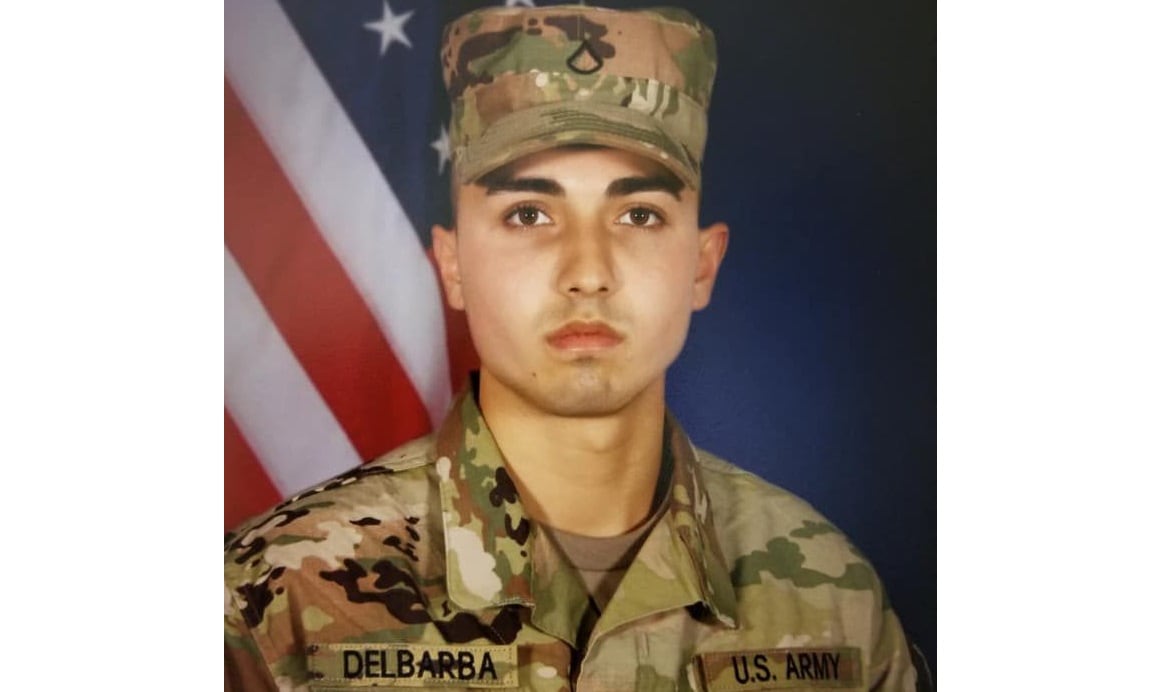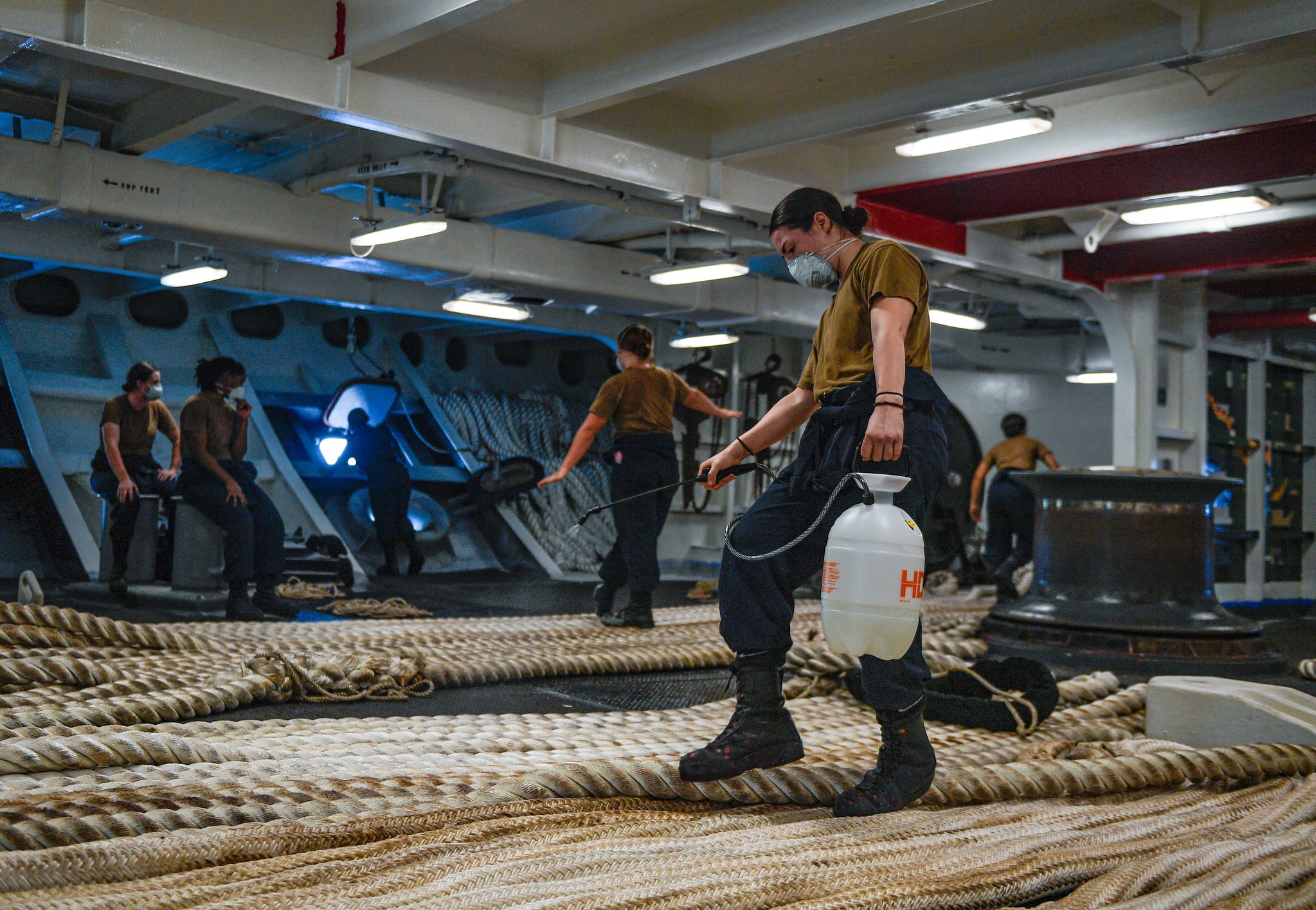CAMP SMITH, Hawaii ― Wearing masks, wiping down work spaces and quarantine periods have presented a fringe benefit to military operations, most notably in the basic training environment. Fewer troops are coming down with communicable diseases, which take them out of the fight for days or even weeks.
Keeping in mind that the end of the COVID-19 pandemic is not nearly in sight, and that the promise of a vaccine is months away at best, military medicine is learning in real time how best to keep troops safe for now, and perhaps into the future.
“One of the things that, I will tell you, we definitely believe has made a difference is the masks, particularly in close quarters,” Rear Adm. Louis Tripoli, U.S. Indo-Pacific Command’s top doctor, told reporters Aug. 31.
Infectious disease has always been a threat to readiness, from cholera in the 19th century to COVID-19 now. What can’t be vaccinated for has to be mitigated, or at least accepted as part of the risk of deploying troops ― like the infamous “crud,” a cold that seems to sweep through units soon after deployment.
But the coronavirus pandemic has forced the services to up their game when it comes to preventing disease transmission, and in the mean time, they’ve learned some things.
“I think that we’ve learned a lot from this particular outbreak about what we just we as a medical community ... really didn’t understand about how a pathogen like this can be transmitted, and the value of masks,” Tripoli said.
For example, the commander of Marine Recruit Depot Parris Island, South Carolina, told Defense Secretary Mark Esper during a May trip to boot camp that the mandatory two-week quarantine for new trainees had yielded two very promising results: 1) Isolated new recruits had plenty of time to study their basics, creating more confident, thoughtful trainees once group instruction began, and 2) The number of trainees heading to sick call with respiratory illness is way down.
To date, just over 40,000 troops have contracted COVID-19, including 592 hospitalizations and seven deaths, per the latest Defense Department numbers.
To prevent spread, Esper issued policy that masks must be worn when six feet of distance can’t be maintained. He also banned non-essential travel for three months, before slowly reauthorizing temporary duty and permanent change-of-station travel in accordance with local testing and quarantine rules.
“No combination of testing and restriction-of-movement will give you 100-percent assurance that you’ve gotten all of it,” Tripoli said. “We have a job to do, and we do work in a risky environment ― even pre-COVID ― and we have to find that balance.”
Whether any of the restriction-of-movement protocols, mask mandates or disinfection procedures become permanent remains to be seen, but Tripoli said the lessons learned will likely make their way into policy.
RELATED

“It makes sense, doesn’t it?” he said. “I think when it comes to airborne infections like this ... I think discoveries with the masks and the hygiene, I do believe they’re going to stick in one way or another. We’re finding out more and more about the benefits of this.”
Specifically around masks, he added, the early research has shown that not only do they prevent aerosolized coronavirus from being transmitted through breath, they cut way down on the ability to touch one’s nose and mouth and then touch another surface ― the primary mode of transmission for cold and flu.
So long after local regulations return to something resembling normal, the services could order stricter infectious disease transmission mitigation rules under some circumstances.
“We try to take advantage of every opportunity that we can do protect our force,” Tripoli said. "We have the advantage of being able to say, ‘You will wear something’.”
Those lessons will also help out if and when the next pandemic hits, he added. Any “new normal” will need to continue on what COVID-19 has taught the military about detecting illness and preventing its transmission.
“I think most experts would agree that the potential that something like this could happen again ― there are conditions ... that would make you concerned that this isn’t the last time we’ll see an outbreak like this,” Tripoli said.
Meghann Myers is the Pentagon bureau chief at Military Times. She covers operations, policy, personnel, leadership and other issues affecting service members.




